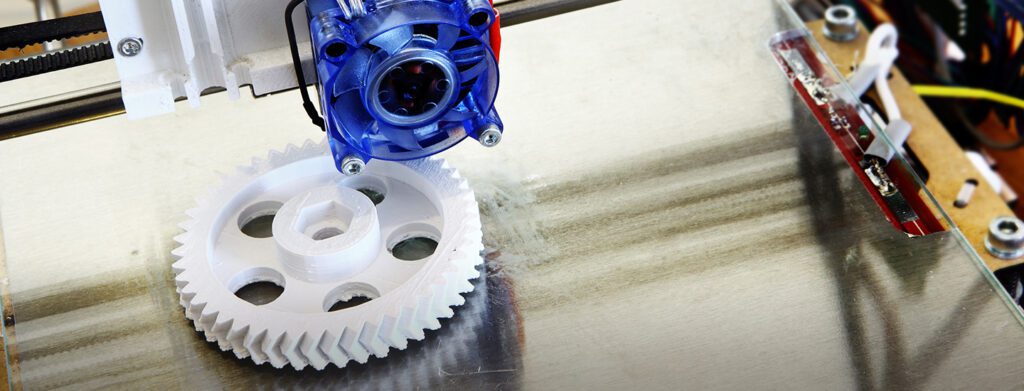
A couple of years after the original buzz surrounding 3D printing and how it might revolutionise the manufacturing sector, it continues to generate headlines – just last week, the BBC reported on a 3D printed heart that helped to save a girl’s life.
From 3D hearts to dresses, jewellery, supercars and houses, and using materials as diverse as plastic, metal and chocolate; it seems that there is little a 3D printer cannot print.
Also known as additive manufacturing, 3D printing allows you to create a design on a computer screen which then talks to the 3D printer instructing it to precisely spread thin layers of the chosen material on top of each other, building up a solid 3D structure.
3D printing has allowed manufacturers to get much quicker at producing prototypes (taking weeks or months off the process), but with techniques and the materials improving, manufacturers are now able to produce final products ready for end-users. For smaller manufacturers who may have previously outsourced the prototyping, this means they can now make significant savings (of time and money). In theory, 3D printing should allow manufacturers to easily produce local and cheaper made-to-measure products, whilst also allowing them to manufacture with greater flexibility, accuracy and functionality.
As a result of these advantages and the relative cheapness with which you can now buy a 3D printer (for less than £1,000), 3D printers are popping up throughout the UK, with the UK’s first 3D printing café opening up last year in Shoreditch, East London, where you can get a coffee whilst watching your design come to life.
Of course there are! Although 3D printing has been around for quite some time, there remain no specific laws governing the industry.
Products that can be reproduced by a 3D printer are likely to be protected by various intellectual property (IP) rights in the UK and worldwide, including patents, design rights, trade marks and copyright. These rights could be infringed if an unauthorised person makes copies of the protected product for commercial purposes. The software files that contain the product code may also be protected by IP rights (including copyright), meaning that sharing and copying these files could be IP infringement.
Whilst there are limited exceptions under English law that allow an individual to create a product for his own personal use without infringing some of these IP rights (namely trade marks and design rights), that individual cannot then sell the product.
There are also concerns that, as 3D printing becomes more mainstream, the production of counterfeit goods will increase, as it allows products that may be protected by IP rights to be replicated accurately, cheaply and quickly. As 3D printing becomes more accurate, it may become hard to tell whether you have a counterfeit product or the real thing.
This consumer level of IP infringement could be challenging to monitor and police for brand owners and manufacturers. One solution could be to create an iTunes-type database of design (software) licences that consumers can legally purchase for an affordable fee, or to sell your own design licence straight from your website.
It is a case of watch-this-space for the law to change as 3D printing keeps pumping.
For more information please contact David Thompson, Partner in our Intellectual Property team.
Applications for this pitch event have closed. If you are interested in joining the network and attending our events please email mainstream@michelmores.com for further details. We hold...
If you are interested in joining the network and attending our events please email mainstream@michelmores.com for further details. We hold five pitch events a year where high-growth early-stage...
If you are interested in joining the network and attending our events please email mainstream@michelmores.com for further details. We hold five pitch events a year where high-growth early-stage...